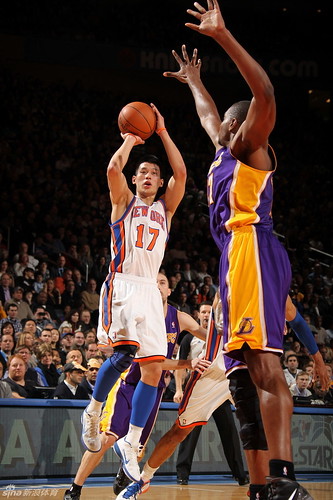 Sorry. As a fellow dorky, Asian Harvard grad, I may have gotten swept up in the adoration of Jeremy Lin that’s sweeping the
Sorry. As a fellow dorky, Asian Harvard grad, I may have gotten swept up in the adoration of Jeremy Lin that’s sweeping the nation world. And, um, the puns—at least the ones that aren’t ethnic slurs. (Don’t get me started on that one, please.)
Anyway. Thanks to his underdog-made-good story, Jeremy Lin has thoroughly saturated pop culture—everything from serious discussions of immigration to discount airfares. And now, Linsanity has entered the literary world. In the fortnight since Lin shot to fame, multiple authors have penned ebooks about him for the Kindle. Reports Fast Company:
Several of the e-books repurpose publicly available biographical information on Lin or interviews conducted before he hit the big time. Lin didn’t sit for For Linsanity: The Improbable Rise of Jeremy Lin by ESPN: The Magazine contributor Alan Goldsher. But that didn’t stop Goldsher from writing a 15,000-word manuscript in 72 hours.
Goldsher goes on to detail the fast turnaround—and I mean fast—as well as why he wanted to write the ebook:
Hold onto your hats, kids: 72 hours to write a 15,000-plus-word manuscript, 36 hours for the fine folks at Vook to build the e-book, and then another 24 hours for them to arrange the distribution. So from conception to availability, we’re talking just under a week. […]
As a novelist and avid fiction reader, I have a healthy appreciation for a good story, and by story, I mean something with a beginning, middle, and end, and character development, and conflict, and obstacles to be overcome. Jeremy’s path to the NBA has all that, and then some.
Stop and think about that. 72 hours of writing, plus two and a half days until the book is in print. Much of all of the Lin ebooks were based on publicly available knowledge, but… still.
Could this kind of instant-publishing model *ever* be feasible for fiction writing? And the $20,000 question: what’s the tradeoff in quality?





